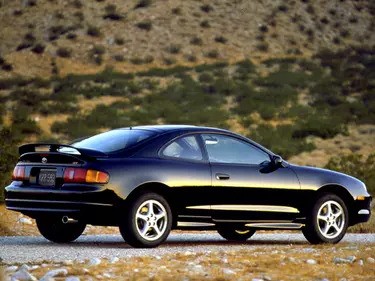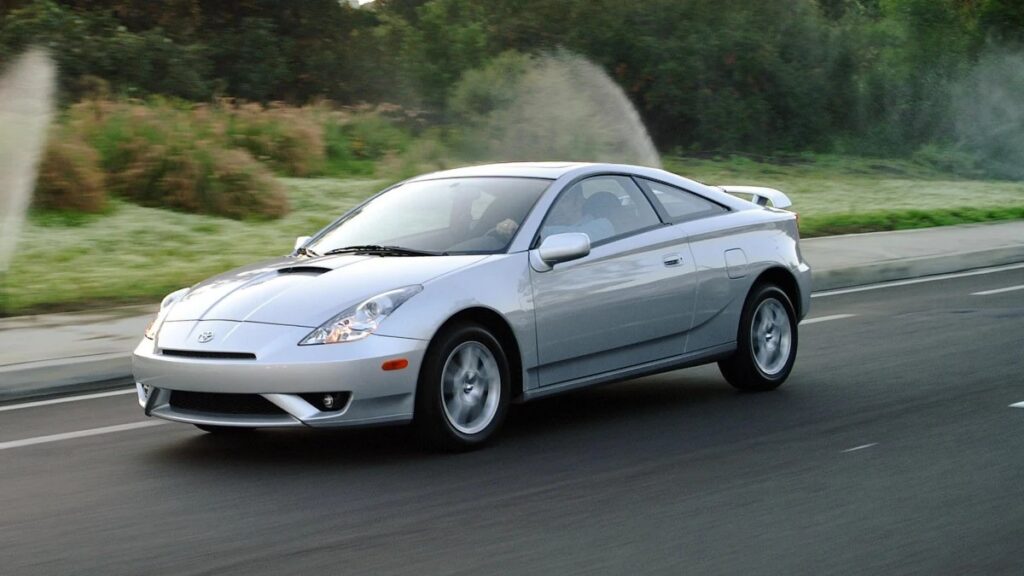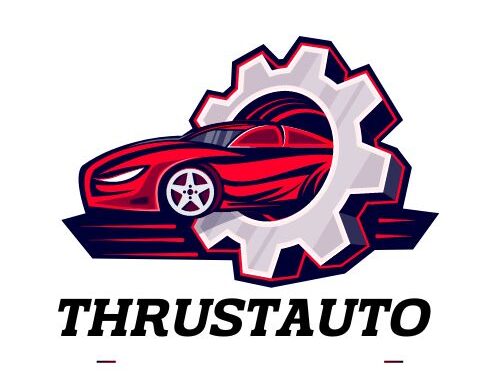Are Toyota Celicas Reliable – Know About It!
I’ve had my Toyota Celica for a few years now, and it’s been really reliable. With just regular upkeep, it’s run smoothly and had very few problems. It’s definitely proven to be a dependable car.
Yes, Toyota Celicas are generally reliable. They are known for their durability and long-lasting performance when properly maintained.
Wondering if a Toyota Celica is reliable? Find out why this classic car is known for being dependable and long-lasting!
Is a Celica a Good Choice for a First Car?
The Toyota Celica can be a great option for a first car due to its reputation for reliability and ease of handling. Known for its sporty design and dependable performance, the Celica offers a fun driving experience while still being practical.
Its solid build and straightforward maintenance needs make it a manageable choice for new drivers who want a reliable vehicle without complex upkeep.
However, it’s important to consider the model year and condition when choosing a Celica. Older models, while affordable, may require more frequent repairs or maintenance. Additionally, because the Celica is a sporty car.
it might have higher insurance rates compared to more modest vehicles. Overall, if you find a well-maintained Celica, it can be a fantastic first car that combines style with practicality.
How Does the Reliability of a Toyota Celica Compare to Other Sports Cars?
When compared to many other sports cars, the Toyota Celica is particularly reliable. Toyota’s reputation for producing durable and long-lasting vehicles extends to the Celica, which frequently benefits from the brand’s concentration on quality engineering and strong components. In terms of dependability, the Celica routinely beats some of its sports car rivals, notably those from automakers with less stable track records

For example, when compared to sports vehicles like as the Mitsubishi Eclipse or Ford Mustang, the Celica has fewer claims of frequent mechanical problems or expensive repairs. Its maintenance requirements are frequently simple and inexpensive,
Which can be a big benefit for owners trying to save upkeep expenditures. While other sports cars may have more power or advanced amenities, the Celica’s dependability makes it an excellent choice for individuals who value longevity and inexpensive maintenance.
How Long Do Toyota Celica Engines Last?
Toyota Celica engines are known for their durability and longevity. On average, a well-maintained Toyota Celica engine can last between 200,000 to 250,000 miles. This lifespan is largely due to Toyota’s commitment to quality engineering and the Celica’s solid build. Regular maintenance, such as timely oil changes, coolant flushes, and routine inspections, can help extend the engine’s life even further.
The longevity of a Celica engine can vary based on several factors, including the model year, driving habits, and how well the vehicle has been maintained. For instance, Celicas from the late 1990s and early 2000s are known for their robust engines that can achieve high mileage with proper care.
However, as with any vehicle, neglecting maintenance or facing severe driving conditions can shorten the engine’s lifespan. Overall, with regular upkeep, a Toyota Celica engine is designed to be a reliable and long-lasting component of the vehicle.
What Are the Common Reliability Issues with Older Toyota Celica Models?
Engine Wear and Tear:
Older Celica models, especially those from the 1990s, may experience engine wear due to high mileage. Common issues include oil leaks and decreased performance, often attributed to aging components.
Suspension Problems:
The suspension system in older Celicas can become worn over time, leading to issues such as a rough ride or handling problems. Replacing worn shocks and struts can help maintain ride quality.
Transmission Issues:
Some older Celica models may face transmission problems, including hard shifting or slipping gears. Regular transmission fluid checks and changes can help mitigate these issues.
Electrical System Failures:
Electrical components, such as power windows and lighting systems, may become unreliable in older Celicas due to aging wiring or faulty switches.
Rust and Corrosion:
Depending on the climate where the Celica has been used, rust and corrosion can be an issue, particularly on the body and undercarriage. Regular inspections and rust prevention treatments can help address this problem.
Cooling System Issues:
Problems with the radiator or thermostat can arise in older models, leading to overheating. Ensuring the cooling system is regularly serviced can prevent overheating and engine damage.
Timing Belt Replacement:
For older Celicas equipped with a timing belt, it is crucial to replace the belt at recommended intervals to avoid engine damage due to belt failure.
Air Conditioning System Failures:
The air conditioning system in older models might become less effective or fail, often due to leaks or worn-out components.
Which Model Years of the Toyota Celica Are Known for the Best Reliability?
The Toyota Celica models from the late 1990s and early 2000s are often highlighted for their exceptional reliability. Specifically, the 1999 to 2003 model years stand out due to their robust engines, improved engineering, and solid build quality.
These models benefited from Toyota’s commitment to reliability and feature enhancements that addressed earlier issues, leading to a reputation for durability and long-lasting performance. Owners of these Celica models frequently report fewer mechanical problems and a more dependable driving experience compared to earlier versions.
Are Toyota Celicas Prone to Specific Mechanical Problems?
While Toyota Celicas are generally known for their reliability, they can be prone to certain mechanical problems, especially in older models. Common issues include engine wear, which can lead to oil leaks and decreased performance if not properly maintained.

Suspension components, such as struts and shocks, may also wear out over time, affecting ride quality. Additionally, some models may experience transmission problems, such as hard shifting or slipping gears. Regular maintenance and timely repairs are crucial to mitigating these issues and ensuring the longevity of the vehicle.
What Are the Most Frequently Reported Issues with the Toyota Celica’s Engine?
Oil Leaks:
Many Celica owners report oil leaks, which can stem from aging seals and gaskets. These leaks can lead to low oil levels and potential engine damage if not addressed promptly.
Engine Sludging:
In certain models, particularly those from the late 1990s, engine sludging can occur if the engine oil is not changed regularly. Sludge buildup can affect engine performance and longevity.
Timing Belt Wear:
For Celica models equipped with a timing belt, failure to replace the belt at recommended intervals can lead to significant engine damage. This is particularly important for models from the 1990s and early 2000s.
Overheating:
Issues with the cooling system, such as a failing thermostat or radiator leaks, can cause the engine to overheat. Regular maintenance of the cooling system can help prevent these problems.
Fuel Pump Failures:
Some Celica owners have reported issues with the fuel pump, which can lead to poor engine performance or starting difficulties. Replacing a faulty fuel pump is crucial for maintaining engine reliability.
Ignition Coil Problems:
Faulty ignition coils can cause misfires, poor acceleration, and rough idling. Regular inspections and timely replacements can prevent these issues from affecting engine performance.
FAQS:
How often should I perform maintenance on a Toyota Celica to ensure its reliability?
Follow the manufacturer’s recommended maintenance schedule, which typically includes oil changes every 3,000 to 5,000 miles, regular checks of fluids, and periodic inspections of key components like the timing belt.
How does the driving style impact the reliability of a Toyota Celica?
Aggressive driving or frequent short trips can lead to increased wear and tear on the Celica. Gentle driving and allowing the engine to warm up properly can help maintain its reliability.
Are there any recalls affecting the reliability of Toyota Celica models?
Some older Celica models have had recalls for various issues. Check with a Toyota dealership or the National Highway Traffic Safety Administration (NHTSA) for any outstanding recalls that might affect reliability.
What are the best practices for extending the lifespan of a Toyota Celica?
Regularly follow maintenance schedules, address minor issues promptly, use high-quality parts, and ensure timely repairs to extend the vehicle’s lifespan and maintain its reliability.
How does the Toyota Celica’s reliability compare to newer Toyota models?
While the Celica is known for reliability, newer Toyota models generally benefit from more advanced technology and improved engineering, which can offer even greater reliability and efficiency.
Conclusion:
Toyota Celicas are known to be reliable cars. When well-maintained, they tend to be durable and last a long time, making them a dependable choice for drivers.
Read:
- How Many Miles Will A Toyota Tacoma Last – Find Out How Long It Lasts!
- How Long Will A Toyota Camry Last – A Simple Guide!
- Are Toyota Prius Reliable – Get The Facts Now!

I’m Harry Edward, your Toyota car expert. With 5 years of experience in Toyota car repair, I share practical tips and insights to help you keep your vehicle in top condition.
From routine maintenance to fixing common issues, my goal is to make your Toyota ownership experience smooth and enjoyable.







